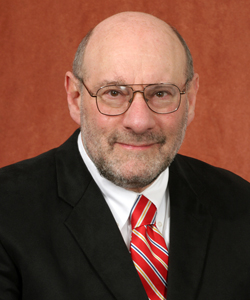
As President Donald Trump begins his first full week in office, he has already made a number of moves signaling an end to Obama-era policies.
Trump signed an executive action ordering his agency heads to ease financial burdens associated with the Affordable Care Act. He also signed an executive order that withdraws the United States from the negotiating table of the Trans-Pacific Partnership and another that imposes a freeze on federal government hiring.
Florida State University has a number of internationally recognized experts who can comment on the implications of these executive orders.
AFFORDABLE CARE ACT
- Marshall Kapp, Director of the Center for Innovative Collaboration in Medicine and Law: (850) 645-9260; marshall.kapp@med.fsu.edu
Kapp is an expert on health policymaking, including the constitutional implications of policies such as the Affordable Care Act.
“The ACA has not brought about the ideal but elusive balance of health care quality, access and affordability. Whether we use the phrase ‘repeal and replace’ or we call it by a different name, significant change in the way that we provide and pay for health care in the U.S. is inevitable.”
- Dr. Leslie Beitsch, Chair of the Department of Behavioral Sciences and Social Medicine: (850) 645-1830; les.beitsch@med.fsu.edu
Beitsch’s focus is on health policy. He has both a medical and law degree, and he is the founding director of the Center for Medicine and Public Health at the FSU College of Medicine. He served as Commissioner of Health for the state of Oklahoma and deputy secretary for the Florida Department of Health.
- William Weissert, Professor of Political Science: wweissert@fsu.edu
Weissert studies the politics of health care and long-term care policies.
TRANS-PACIFIC PARTNERSHIP
- Sean Ehrlich, Associate Professor of Political Science: (850) 644-7325; sehrlich@fsu.edu
Ehrlich is an expert on trade policy and international policy economy. He is currently working on his second book, “The Politics of Free Trade: Moving beyond Fair Trade and Protection.”
- Randall Holcombe, DeVoe L. Moore Professor of Economics: (850) 644-7095; holcombe@fsu.edu
Holcombe is an expert on the effect of government activity on economic growth.
“The Trans-Pacific Partnership was not going to take effect in any event. There was too much opposition in Congress. The best outcome of President Trump’s withdrawal from the TPP would be that it gives him a clean slate to negotiate more straightforward trade agreements. Free trade is best for everyone, but the TPP, at more than 5,000 pages in length, was hardly a free trade agreement. You don’t need 5,000 pages to agree to free and fair trade.”
FEDERAL HIRING FREEZE
- Sebastian Goerg, assistant professor, Department of Economics: (850) 644-7083; sgoerg@fsu.edu
Goerg is an expert in the areas of organizational and personnel economics. He can explain how monetary and non-monetary incentives, goals, compensation schemes and social interactions influence the behavior of employees at the workplace.
“The federal civilian workforce as a share of the total non-farm workforce has been declining since the end of World War II. While in the 1950s and 1960s it made up more than 4 percent of the workforce it was down to 1.9 percent in December 2016. The current hiring freeze will most likely not result in any additional reductions. In fact, previous hiring freezes had little effect on federal employment, but decreased the effectiveness of some agencies. The new administration intents to present a long-term plan to reduce the size of the federal workforce, as of now, we can only wait for the details.”




